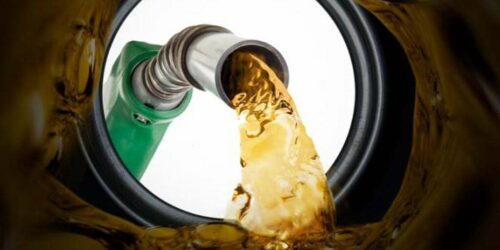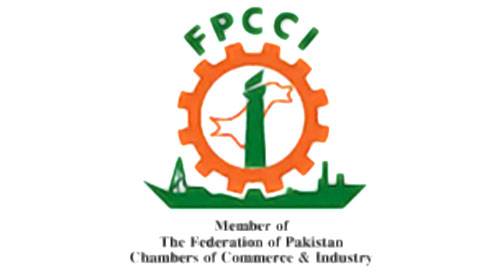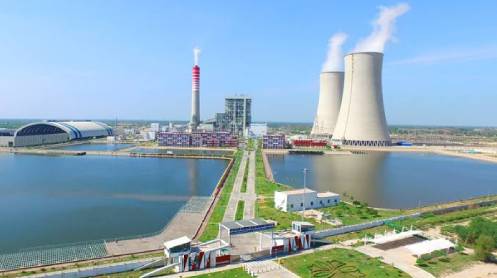The sales-strapped Attock Refinery Limited (ARL) on Thursday shouted out to apex oil sector regulator to save it from a full-scale shutdown owing to a drastic fall in the upliftment of petroleum products by the oil marketing companies (OMCs) that are now relying more on somewhat cheaper imports, The News learnt on Thursday.
“If the OMCs do not increase lifting petroleum products from ARL, the disruption of the entire crude oil and gas supply chain cannot be ruled out including the supplies to the Armed Forces and Islamabad Airport,” said the ARL management in an official communication to Masroor Khan, Chairman Oil & Gas Regulatory Authority (OGRA).
The ARL in its letter, written to Ogra chief on Thursday, urged the authority to intervene and immediately direct OMCs to lift the products from the refinery.
ARL caters to the petroleum needs in KPK, AJK, GB, and the Potohar region up to Kharian and in case of its closure, the said regions will face an acute shortage of petroleum products.
“Due to low upliftment of petroleum products especially HSD (High Speed Diesel), it has very limited ullage of MS (petrol) and HSD left at the refinery. And to avoid a complete shutdown of the refinery, the management has temporarily shut down one crude distillation unit and it is now operating at about 70 percent of its capacity,” the refinery informed the Ogra chief.
“If the dispatch patterns persist, complete refinery shutdown now appears imminent.”
The letter mentions that ARL had earlier protested with Ogra on the same issue on August 16, 2022 through email but the regulator didn’t take the required action.
However, industrial sources say that apparently OMCs are bringing imported products in ARL’s market area and claiming IFEM (Inland Freight Equalization Margin) on petrol and HSD.
As per the government policy, OMCs are allowed to bring petroleum products in only deficit products in ARL area means they should first uplift products from ARL.
However, the defiance by OMCs shows that Ogra and the Petroleum Division have no control on them.
“The ARL shutdown would have serious consequences on the local crude and gas supply chain.”
The letter reiterates that ARL is in a deficit supply zone for both HSD and PMG which is why its products should be prioritised for upliftment by OMCs before moving any volumes in our supply envelope.
Crisis-hit Sri Lanka warns of record 8pc economic contraction
Ag AFP
By News Desk
Colombo: Sri Lanka´s economic meltdown will result in a record contraction of at least eight percent this year but the public could soon expect some relief from runaway inflation, the head of the country´s central bank said Thursday.
The island nation defaulted on its $51 billion foreign debt in April and is seeking an International Monetary Fund bailout after months of food, fuel and medicine shortages.
Its 22 million people have also suffered through lengthy blackouts and spiralling cost-of-living pressures after scarcity and a currency crash drove up prices.
The Central Bank of Sri Lanka had already projected the economy could shrink a painful 7.5 percent for the calendar year, dwarfing the previous record 3.6 percent contraction in 2020 as the pandemic raged. “But now we think it will exceed 8.0 percent,” governor Nandalal Weerasinghe told reporters in Colombo.
He said inflation — officially running at 60.8 percent — will peak at “about 65 percent” in September, followed by a gradual easing caused by lower demand and improvements in supplies.
The foreign exchange shortage that sparked the economic crisis had eased thanks to better currency inflows and lower imports, he added.
“We are now able to finance the most essential imports such as petrol and diesel and medicines,” Weerasinghe said.
At the peak of Sri Lanka´s fuel shortages, motorists had to wait for days and sometimes weeks to top up, but strict fuel rationing has shortened queues.
Months of protests over the collapsing economy culminated in the resignation of president Gotabaya Rajapaksa, who was forced to flee his official residence after it was stormed by a huge crowd last month. Rajapaksa is accused of mismanaging the island nation´s economy to the point where it was unable to finance even the most essential imports.
He has since travelled to Thailand and close associates have said he was desperate to return home, where he faces corruption charges that had been suspended because of his presidential immunity.
The political upheavals last month stalled talks with the IMF, but a delegation from the international lender of last resort is expected in Colombo before the end of August.
Weerasinghe said he was hopeful authorities would finalise a staff-level agreement with the Fund later this month ahead of a formal bailout deal. Meanwhile, President Ranil Wickremesinghe told Reuters that Sri Lanka will ask Japan to invite the Indian Ocean island’s main creditor nations, including China and India, to talks on bilateral debt restructuring as it seeks a way out of its worst economic crisis in decades.
Someone needs to call in, invite the main creditor nations. We will ask Japan to do it,” Wickremesinghe told Reuters in an interview, adding that he would travel to Tokyo next month to meet Prime Minister Fumio Kishida.
Wickremesinghe said talks were ongoing with China, and that they had been positive so far.
Sri Lanka’s total bilateral debt was estimated at $6.2 billion at the end of 2020 by the IMF, according to a March report, with Japan and China holding the largest shares.
This year alone, India has poured in around $4 billion to help keep Sri Lanka’s economy afloat, mainly through credit lines and swaps. Sri Lanka also has $14 billion of international sovereign bond debt.





